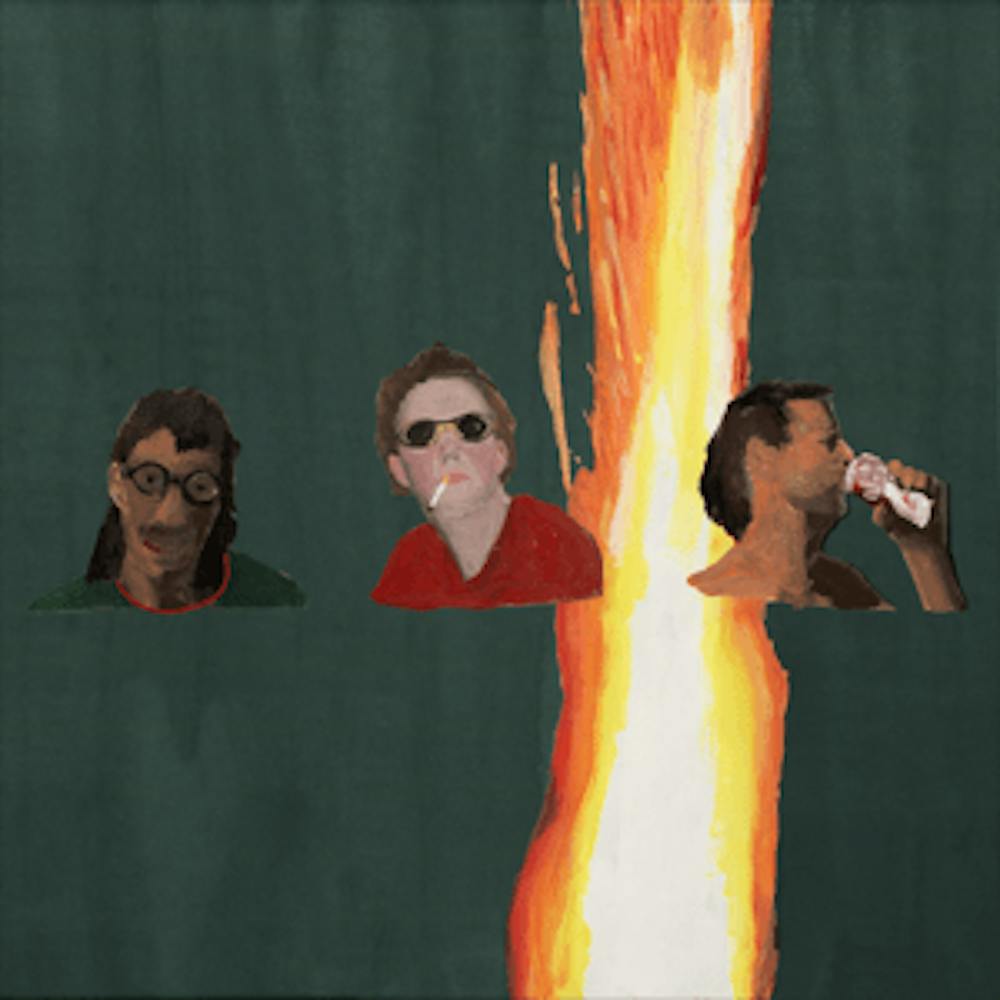On Sept. 6, MJ Lenderman released his fourth studio album, “Manning Fireworks”, thereby rekindling a period of stormy indecision about my feelings towards his music and writing.
This record comes on the heels of 2023’s “And The Wind (Live and Loose!)”, a delightfully exposed live album that, when I first spent time with it, planted me on Team Lenderman with a firm (albeit measured) sense of resolve.
And so, just under a year later, while acquainting myself with “Manning Fireworks”, I feel strangely conflicted. I think this is the album Lenderman aspired to create, but I’m not certain that it — and, by extension, he — is as deserving (at the moment!) of the level and volume of starry-eyed critical acclaim that has been accruing around his figure in recent months.
With all reservations about the efficacy of “genre” as a useful mode of description aside, Lenderman descends from the Songs: Ohia strain of alternative rock — more precisely, in its alt-country formulation — where along the way he has transmuted influences from Neil Young, Palace Music, Sparklehorse and, perhaps most obviously, the late David Berman of slacker-rock archangels Silver Jews, without whom the idiom of Lenderman’s lyrics probably would not exist in the way that it does.
He’s not the Neil Young for Generation Z — Neil Young is the Neil Young for Generation Z; let’s not delude ourselves — but I do agree with positioning him in conversation as the Jason Molina for the generation who missed out on Imogen Heap, but has Caroline Polachek. That seems fair.
“Manning Fireworks” begins rather quietly with “Manning Fireworks”, a warbly and balladic ditty that serves fairly well as a titular abstract for the record. Lenderman, beginning in the epistolary mode, addresses the faceless, lamentably one-of-many figure who occupies the mainstage of the record’s lyrical attention: Someone who “sneaks backstage to hound girls at the circus”, a ‘baby’-turned-‘jerk’ now relegated to shamefully “Standing close to the pyre, manning fireworks.”
Lenderman also ushers in biblical references, namely original sin, offering us a moral prism and a common religious interface with which to examine the record’s clear preoccupations with ignominy and romantic failure.
The following track “Joker Lips” is this album’s great achievement when it comes to the careful engineering of instrumentation and sound. “Joker Lips” provides the single-best pedal steel tone I have ever heard. It evades the shinier, shallower gleam of Crosby, Stills, Nash & Young’s deployment of the instrument (c.f. “Teach Your Children”) in favor of an even blurrier, even warmer quiltedness; I think of First Aid Kit’s heartrending “Emmylou” or “Have You Forgotten” by Red House Painters as existing in a complementarity with this particular hug of noise.
My complaint with “Joker Lips” — and much of this record — lies in its lyrical register: “And you know I love my TV / But all I really wanna see, is see you need me.” This would be a good line if it wasn’t so trite, so heavy-handedly committed to distinguishing between the plainly disabling material world and the antimaterial craving for being deemed necessary in the life of another.
Beguilingly unimpressive lines of this order are found hither, thither and yon across the plateau of the three attending songs: “Rudolph” lands on the refrain “I wouldn’t be in the seminary if I could be with you”; Wristwatch features “I’ve got a beach home up in Buffalo” (this one is a near-perfect pastiche from Frank Ocean’s “Thinkin Bout You”) and “I’ve got a houseboat docked at the Himbo Dome”; “She’s Leaving You” instructs the eminently masculinized loner to “Go rent a Ferrari / And sing the blues / Believe that Clapton was the second coming.” In some sense, this record assumes the garb of a meditation on how to self-parody to the point of fatigue.
My working theory about the flurry of praise around his lyricism is the following: After David Berman’s suicide in 2019, the indie rock community was left reeling from the loss of its dazzling poet laureate who held the title in a relatively uncontested fashion since 1994, when the Silver Jews record “Starlite Walker” was released. The hunt began for Berman’s successor, and the commentariat seems to have converged on Lenderman, in all of his partial, seasonal cleverness, as a candidate. This feels hasty.
It would be much easier to write off “Manning Fireworks” as merely good but lyrically flimsy if the record ended at “Rip Torn”, which, naturally, it cannot do.
Tracks 7 and 8, “You Don’t Know The Shape I’m In” and “On My Knees”, display a more earnest confessionalism, where the perennially misguided and pining subject of prior tracks assumes a twofold posture, first of forthright admission — “But I know sometimes we just drift apart” — then of humble repentance: “Oh, wherever you find me / You'll find me on my knees.”
The final song, Bark At The Moon, the longest on the record by a wide margin, delivers what is perhaps the album’s enabling concession: “You're in on my bit, you're sick of the schtick / Well, what did you expect?” It’s not a foundational misalignment of selves that led our wandering loner away from a successful romance and into the clergy, but the clash between an earnest presentation and the (often errant) hunt for a sustainable identity.
Though I find the narrative trajectory spun in the journey between “Manning Fireworks” and “Bark At The Moon” a bit ramshackled, I admire Lenderman’s gesture towards an unbosoming in the concluding minutes of the record. It stood, and continues to stand, athwart my expectations of the album’s broader aspiration, where the purveying of a serious emotional contemplation is always filtered through witty, gratingly tongue-in-cheek modifiers. The quiet voice of the altar boy Lenderman once was, in the childhood he once had, persists.
Despite my conceiving of this record as a concept album inspired by the pandemic-era images of priests baptizing infants with water guns loaded with holy water, I take a kind of solace in Lenderman’s refusal to carry the shtick, as it were, all the way to completion; his subtle insistence that it is possible — like the pairs of people in “You Don’t Know The Shape I’m In” disembarking from Noah’s Ark — to exist, however briefly and with whatever levels of lonely remorse, in the world of the redeemed.

Cole Chaudhari ’26 (he/him) is a Managing Editor.
Cole is a managing editor at The Campus, where he has previously served as a news editor, copy editor, and staff writer. He is a junior, and is studying history and literature.




